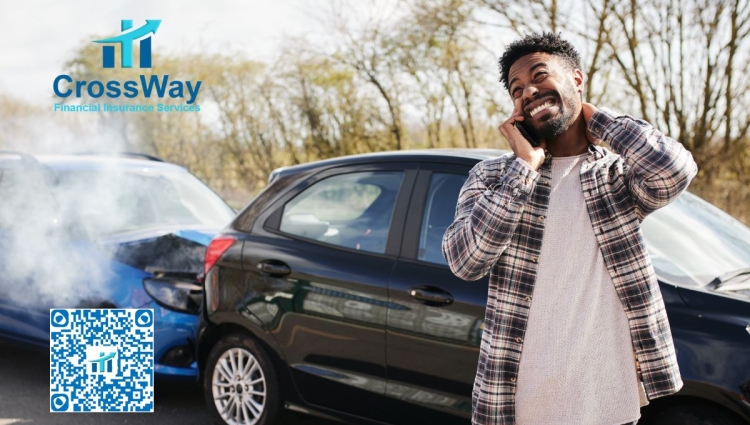Accidents happen, and when they involve our vehicles, the aftermath can be overwhelming. Understanding the right steps to take immediately after a car accident not only ensures your safety but also positions you
to make the most of your insurance policy. Here's a guide to help you navigate these challenging moments with confidence.
1. Safety First
The immediate aftermath of a car accident can be chaotic. Your first priority should be safety. If possible, move to a safe area to prevent further accidents. Turn on your hazard lights to alert other drivers, and check yourself and others for injuries. If necessary, call emergency services right away.
2. Call the Police
It's crucial to have an official report. Regardless of the accident's severity, a police report is a key document in insurance claims. Provide accurate information to the officers, but avoid speculating or admitting fault.
3. Document the Accident
Use your phone to take pictures of the vehicles, the damage, and the overall scene. Note down the time, date, and weather conditions. Exchange contact and insurance information with all parties involved but avoid discussing fault or details of the accident.
4. Witness Information
If there are witnesses, get their contact information. Their accounts can be invaluable in settling disputes about the accident.
5. Notify Your Insurance Company
Inform your insurance company about the accident as soon as possible. Provide them with all the details and documentation. Remember, honesty is key here; misleading information can lead to claim denial.
6. Medical Attention
Some injuries aren't immediately apparent. Visit a healthcare professional for a thorough check-up. Keep a record of any medical treatments as they can be included in your insurance claim.
7. Keep Detailed Records
Organize all your documents related to the accident. This includes the police report, medical bills, and any communication with insurance companies.
8. Understand Your Insurance Policy
Review your insurance policy to understand what is covered. Be clear about the reporting deadlines and requirements for medical treatment coverage.
9. Avoid Discussing Fault
Let the insurance adjusters determine who is at fault based on the evidence. Admitting fault at the scene can complicate your claim.
10. Consult a Professional if Needed
If the claims process becomes complex or if you're facing significant losses, consider getting professional advice. This is where we come in.
Contact CrossWay FIS for Expert Assistance
At CrossWay FIS, we understand how stressful dealing with a car accident can be. Our team is here to provide you with the support and guidance you need. Whether it’s understanding your policy better, dealing with claim complexities, or just seeking advice on the next steps, we’re here to help.
Visit us at www.crosswayfis.com, email us at
11. Follow Up
Stay proactive in your communication with the insurance company. Ensure that all necessary documents and information have been submitted for your claim.
12. Vehicle Repair and Replacement
Understand what your policy says about vehicle repair and replacement. Some policies may have specific requirements or preferred providers.
13. Post-Accident Reflection
Reflect on the incident and consider any safety lessons or preventative measures for the future. Sometimes, a change in driving habits or additional safety features in your vehicle can make a big difference.
Conclusion
Navigating the aftermath of a car accident can be complex, but by following these steps, you can ensure your safety and make the most of your insurance policy. And remember, CrossWay FIS is here to assist you every step of the way.




 And then Add to Home Screen.
And then Add to Home Screen.